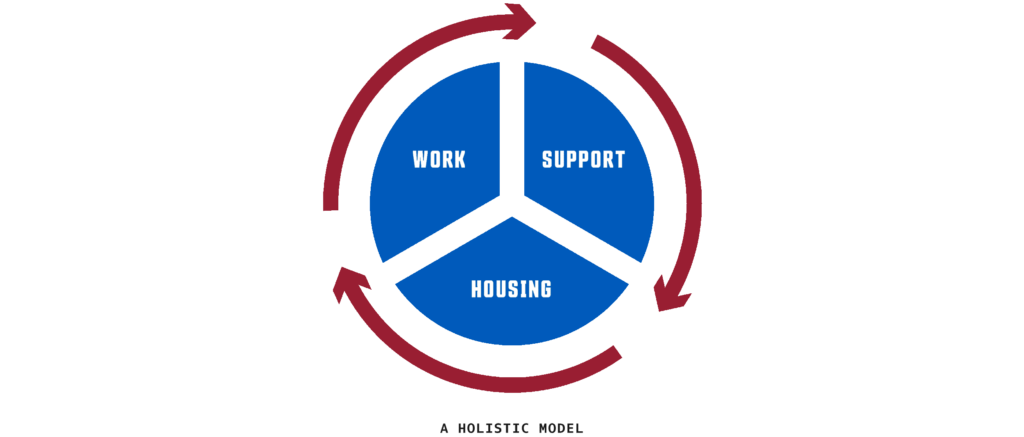Our Issues: Economic Justice

Opportunity is the best solution to homelessness and recidivism.
By October 2020, the average unemployment rate in NYC rose to 13.2% from 3.6% a year earlier, and to 17.5% in the Bronx. 67% of Black and 68% of Latinx New Yorkers have experienced income loss since March 2020, compared to the 54% NYC area average; 80% of individuals making less than $35,000 annually experienced income loss.
The racial disparities in homeless and prison populations—perpetuated by mass incarceration and systemic lack of investment in marginalized communities—are just as staggering. Black Americans comprise 53-58% of NYC’s homeless population and 48% of New York State’s prison population, despite only being 24% and 15% of the city and state population, respectively. Individuals with histories of incarceration have a 27% unemployment rate and are nearly 10 times more likely to experience homelessness than the general public. The un- and under-employment of people who have experienced incarceration leads to a loss of 1.7-1.9 million workers and between $78-$87 billion in GDP per year.
Of the more than 20,000 single adults in New York experiencing homelessness in 2020—an all-time high fueled by the pandemic—78% are un- or under-employed. Additionally, 73% of these individuals do not qualify for social security benefits or permanent supportive housing. Without living wage jobs, they will remain homeless and recidivate.
Employment is the single most important factor in decreasing recidivism; rates are nearly halved for formerly incarcerated people who have full-time jobs versus those who are unemployed. To reduce homelessness and recidivism, New York City must stop investing in incarceration and start investing in human capital. This includes:
- Adopting recommendations from the Recovery for All plan to address the inequities in the workforce exacerbated by the pandemic
- Increasing access to, and funding for, programs that provide career training/retraining for marginalized populations based on local demands, including in emerging sectors such as green jobs as well as in skilled trades facing hiring shortages
- Supporting Community Hiring efforts to prioritize access to union apprenticeships for marginalized communities, as well as mandate inclusive hiring on City-funded projects
- Investing in workforce development solutions that intentionally reach, stabilize and prepare people experiencing homelessness or reentering after incarceration with employment-oriented soft skills, adult basic education, and computer literacy
- Incentivizing private and public customers to hire social enterprises that provide work experience and paid training for marginalized populations
- Allowing nonprofit social enterprises that disproportionately hire minority populations to qualify as MWBE businesses to compete for City contracts

Work Works: A Model Solution
Ready, Willing & Able, a pioneer of the Work Works reentry model, is the first program to combine the immediate impact of paid work in social enterprise with vocational training, transitional housing, and supportive services such as case management, adult basic education, addiction recovery, and financial literacy. Today, Ready, Willing & Able has capacity for 661 trainees across three facilities in New York City, and operates three social enterprises generating over $10 million in economic impact annually.
Best known for the Men in Blue who provide supplemental sanitation services across 115 miles of NYC streets, Ready, Willing & Able also offers training in the culinary arts, building maintenance, security, and pest control. The program also provides Workforce Development training in computer literacy, adult basic education, and job readiness.
To address the crises of homelessness and recidivism, Work Works is a critical intervention for those we are able to become employed in the mainstream workforce and achieve independent housing.



